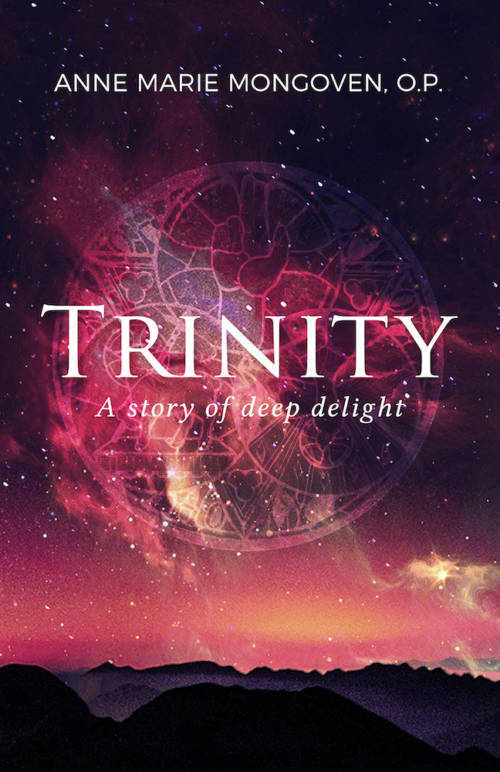Emily Sanna
God is love. It’s a sentiment we hear proclaimed often in song lyrics, scripture, and devotional readings. But what does it actually mean?
This is the question Anne Marie Mongoven asks in her new book, Trinity: A Story of Deep Delight, which was published shortly after her death earlier this year. She writes that understanding God as love gives us a new and profound way to understand the Trinitarian God, since “Loving always implies relationship, for the one who loves needs a beloved, and the lover and beloved are drawn to one another through their mutual love.”

Mongoven says that in St. Gregory of Nyssa’s time, during the late fourth century, the Trinity was so important to people they would argue about its nature in the marketplaces. What happened to that? she asks her readers. When did we lose a deep understanding of Trinitarian love?
Mongoven acknowledges that today most people don’t understand their faith through a Trinitarian lens and are probably unlikely to answer the question “What effect does the Trinity have on your life?” But her book makes a persuasive case that maybe we should stop thinking of the Father or Son as individual entities and instead ponder our relationship to the Trinity as a whole. Only then, she argues, will we truly know what it means to say “God is love.”
Her book uses this metaphor to re-envision each person of the Trinity, both separately and as a whole, using images from scripture, hymns, spiritual writing, liturgy, and other sources. Her concrete examples and easily accessible writing bring the Trinity to life and paint a vibrant picture of a relational God who exists only through relationships.
November 2018
If you would like to purchase Trinity: A Story of Deep Delight for yourself head to our catalogue.

